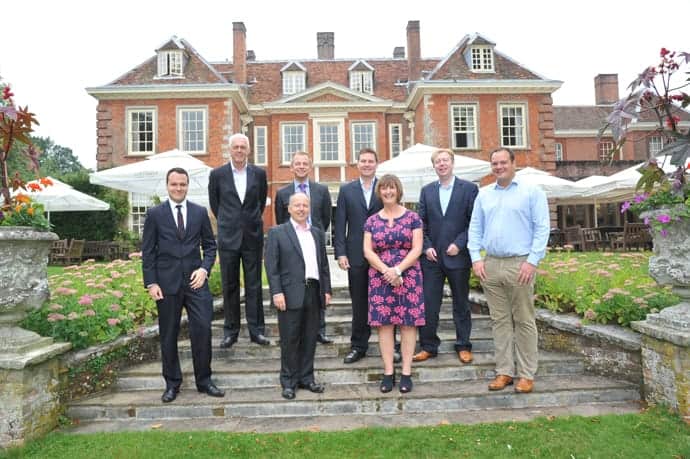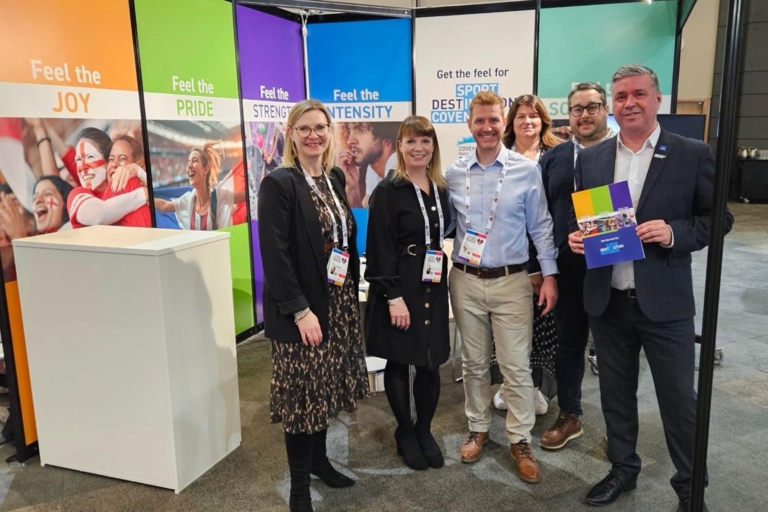What drives entrepreneurs?

This Roundtable was hosted by global financial services provider UBS, with support from The Business Magazine. We invited some successful entrepreneurs and experienced business advisers to express their views and reveal what drives them.
How did you become an entrepreneur?
This simple question revealed some interestingly eclectic stories, yet arguably each had the common theme of wanting to control one’s own destiny.
Insurance company founder Paul Chapman started his entrepreneurial career in his mid-20s, after spending too many days travelling three hours each way to an unfulfilling brokerage job in the City. “I am someone who has to be doing something different all the time, with a project or two on the go.“
He convinced his employers to open an office in Southampton, then persuaded them to loan him the money to buy an insurance business in Lyndhurst. It grew to more than 65 staff, but an incumbent former owner-manager who was set to retire was finding it difficult to let go of the reins. (“That can be quite a common trait of entrepreneurs,“ Andy Hunt added later.)
“The straw that broke the camel’s back was when we wanted to change our credit provider – an old friend of the former owner.“ Chapman returned from holiday to discover a new contract had been signed with the provider.
Chapman got out of the corporate world and with a college friend, decided to start afresh. “We re-mortgaged our houses, then sat in our bedroom office asking ourselves ’What have we done?’“ Fortunately, some previous clients did like what they had done, and the rest is history. “As it’s turned out, starting up on our own was the best thing for us.“David Griffiths saw immediate parallels with his own entrepreneurial story. “I have always had business things on the go since the age of 16, whether it was selling sandwiches on the beach in Los Angeles or hiring out cars. Then, I got with a Nasdaq-quoted company for five years, working really hard, putting in 12-hour days; even knew the cleaners by name.“ Griffiths was head of marketing when “... one day I had this meeting with the CEO and realised he didn’t share the global vision for the company that I did.“
He left the company in order to run his own business in Crowthorne, eventually buying a small accounts-payable software company in April 2007. “As it turned out with the recession it was probably the worst time ever to start a business. I had mortgaged my house, borrowed from family and friends and sold everything to buy this business. I inherited one guy, 20 customers and some rudimentary looking software.“
Griffiths has since taken the business from “... two people losing £35,000 in its first year to 40 staff producing a £3-4 million turnover, with 50% organic growth every year.“
Entrepreneurs don’t always start their own businesses Griffiths pointed out. “You don’t have to start from scratch. You can buy into a business, take over part of a business; there are a lot of other ways to do your own thing. I still feel like a founder, because though the business had been going for five years, it was nothing when I bought it.“
Laura Davis founded her HR business in 2004. “I was a corporate girl for more than 20 years, but discovered my heart really wasn’t in it.“ Corporate restructuring by Tesco’s while she was with its HR team enabled her to make the break and set up her own business. “I had options to go to Asia or sit alongside the key head office team, but I decided to ’take the money and run’.“
Davis had no idea what she wanted to do, but a supportive Tesco’s executive outsourcing programme helped her discover her desire to be her own boss. “People say ’keep contact with your contacts’ when you set up in business, but I began working with SMEs and all my contacts were corporate.
But, people know people, so I started from my back bedroom for a year with a desk and laptop – which I have still got as a dusty reminder of where I’ve come from. People shouldn’t forget what it was like in those early days.
“I didn’t start in HR. I have got an operations background and I think that has helped me as a business owner.
“I always planned to grow organically, and have managed to do that with no debts, and we now have a team of 15. We’ve had 20% year-on-year annual growth in the past three years, have taken on three new people this year, and are in the process of recruiting two more. Times are good at present.“
Josh Williams began his business after graduating from Bournemouth University in 2011.
“I had a gap year travelling because I wanted to get some life experience, but always knew that I would run my own business. I guess I don’t want someone telling me I can’t buy something, or go somewhere or do something particular.“
Williams’ initial plan was to get a solid well-paid job in finance as a stockbroker, but after sending off his CV countless times without success, alternatives began to feature. When he got to the final two in a job interview and lost it to a masters-degree graduate, his entrepreneurial flair kicked in.
“I had no money but had a lot of time and knew two guys like me with marketing skills, so I set up a team selling marketing branding and networking to local businesses on websites.“
Griffiths: “I think it’s brilliant that the younger generation see no barriers to starting up your own business like that. It’s an exciting time for the younger entrepreneurs coming through to realise that they don’t have to follow the traditional career routes of their parents.“
James Hawkeswood agreed: “Being young and having the freedom to take risks, before they had the responsibilities of home and family, was an obvious bonus for prospective entrepreneurs.“
There was also the confidence of youth factor, added David Murray, with younger generations feeling able to take the risks.
Williams accepted that he had no mortgage or family responsibilities to consider, but he was still living at home and working at Asda as he tried to set up his business. He spent Sundays online; learning about business operations and opportunities.
Frustrated entrepreneurs simply lack the ’bottle’
Corporate lawyer Hawkeswood admitted that he knew people who had found interesting but safe careers, but were “effectively frustrated entrepreneurs who never had the bottle to borrow the money against the mortgage, take the risk, and do it.
“The difference is that when I help entrepreneurial guys sign the big contract, they all have similar back-stories. They’ve started in their garage or bedroom, put their house or mortgage on the line, and they have that drive – the sheer selfishness of wanting to be your own boss, not wanting to take orders from people, and being willing to back yourself to the point of failure.“
And some get their rewards for taking those risks, he added.
What are the rewards that entrepreneurs seek?
Money was one obvious incentive, said Murray, but is it the only true driver? In his mind there was a misconception among the public that all entrepreneurs just wanted to get rich
Griffiths: “I got completely burnt out in one of my businesses in 2001. My reward was actually the knowledge, industry insight and experience I gained, obviously not the money.“
Martyn Begbour felt money was simply one of a number of drivers, such as the desire not to be responsible to others, or to follow an individual passion, or to prove a point. Some people definitely do see entrepreneurship as a means to make a lot of money, Begbour agreed, but not necessarily with an end-goal in mind. It is more the successful journey over many years that they focus on, as a personal achievement, to leave a legacy, he suggested.
Perhaps another common entrepreneurial theme was “not working to line someone else’s pockets,“ Hawkeswood suggested.
Begbour: “Very few people set out to make a fortune. They set out for the freedom, they’ve got an idea, and they want the challenge. They don’t set out saying I will exit with £x million pounds in 20 years time. As they go on their journey, money can be a by-product. Then, somewhere along the line they may see the opportunity to make sure that their family and future generations are provided for.“
Griffiths admitted that money motivated him in his early business years, during the dot-com boom. “But I learned that this attitude does not build a great business. I believe the more successful entrepreneurs become, the less they focus on money. It becomes more about growing a great business, building the brand and looking after the 30-40 families that depend on the business, going in to work with contented people and enjoying working with them. You learn that over time.“
... and the routes to entrepreneurial growth?
Chapman said his company growth had been beyond expectations. “The only problem was one year when our largest client went bust, and we lost a lot of money at very short notice.“
Interestingly, Portmore Insurance has recently opened two offices with other like-minded entrepreneurs. “We’ve almost franchised our business out to them, with a joint 50% ownership, but trading under our name. We share banking arrangements and for a split of commissions undertake their accountancy and regulatory work for them. It’s working really well and business is expanding, but I can see we may have a problem with these shared companies, if we ever do come to sell.“
Griffiths said several people thought he was crazy trying to break Fiscal Technologies into the US market with a small company of at the time, only 30-staff. “But, the UK business was building nicely, and I needed another project. Knowing the US intimately, our growth over there became my project. Actually it’s been a lot easier than I thought. Sometimes you have to ignore other people and go with your gut-feel.“
Success had made the company cash-rich and since interest rates on investments were so poor, Fiscal is now considering acquisitions of technology businesses that might complement its operations.
Davis said Reality HR had spare cash too and an acquisition was an option. It wasn’t only the big corporates that made acquisitions, she stressed. She exampled a client with 50 staff, buying a business with 250 staff. “By utilising the respective skills of the two companies they are unified and much stronger now.“
Griffiths: “For us it is all about compatibility, a business having a technology that will fit into our forensic suite.“
Hunt of BCMS, specialist international sell-sale advisers, said many companies and PE houses had built up significant cash reserves since the recession and were now looking at ways to invest that money. “There’s a great deal of money out there, but it’s finding the right opportunity to invest.“ He exampled one International business BCMS sold a business to, currently funding acquisitions to bring together centres of excellence in specialist sectors.
The Roundtable agreed that finding the right business to purchase was a challenge, but so was finding one at the right price. The market is undoubtedly competing very strongly for the best targets which is underpinning prices; this is perhaps favouring longer-term strategic acquires right now, Hunt commented.
Often, the building of businesses differs in the US, said Griffiths, with equity funding brought in much earlier, followed by several rounds of financing, with the aim being rapid business growth leading to a sale to a larger company. We are very much trying to avoid this route and grow organically based on customer success.
Ever considered giving up equity to speed your growth?
The Roundtable agreed it wasn’t high on British entrepreneurial agendas.
“Like we’ve already said, it not all about making money. We just don’t like someone else telling us what to do, or asking why we have not hit a target,“ said Chapman.
Davis agreed: “I would feel like I was losing personal control of my business. I left the corporate world because I didn’t want to be told what to do.“
Griffiths said the big equity question for entrepreneurs was: “Do you want a small part of a big pie, or a big part of a small pie?“
Equity funding is certainly very available, added Griffiths. “I didn’t realise the number of private equity houses out there. I get invitations every week offering funding.“
Hawkeswood: “It depends on the business. There are certain companies that know they will not be able to make the leap to the next stage without a cash injection. Good PE houses will provide that, along with the freedom for people to feel they are still calling the shots.“ Most PE houses look for ambitious businesses with their own growth plans, he added.
“For those who are mistrustful of the PE world, it can be a worry that people might be constantly looking over their shoulder, but the reality is that PE houses back management teams more than businesses. They have to trust those teams to deliver.“
Hunt agreed that PE teams nowadays were far more supportive of management efforts to achieve objectives, and felt that the negative reputation of PE houses being aggressive with managements is less prevalent. “With a strong business model and good planning, you can make significant business gains from PE support, but you have to accept the drive for growth because the PE house will want a return on its investment.“
Williams: “More important than the money, is the people who give you the money.“ If he ever undertook equity funding for his business growth he would seek out the ’smart money’ – funding that came with sector expertise, business contacts, experienced support and people he felt he could work with.
Hawkeswood pointed out the UK’s beneficial tax incentives for business growth. “Arguably, the tax environment has never been better. If you are willing to give up some equity or willing to invest in someone else’s company with the likes of the Enterprise Investment Schemes (EIS), Venture
Capital Trusts (VCT), substantial shareholding exemptions etc, there are tax breaks all over the place for people who are willing to provide funding.“ Many of his clients, wealthy individuals and companies, were now seizing these tax opportunities not least because of the paltry returns currently available on savings.
Williams said he had just done a Seed Enterprise Investment Scheme (SEIS). “It’s a really good option.“
Hunt agreed that many high-net-worth individuals were now investing in businesses to get better returns, even to the extent of setting up their own funding operations.
Has funding ever been a problem?
Griffiths felt there were early-growth funding concerns. “We could get equity funding for £2m but we couldn’t get a bank loan for around £250,000-£500,000.“ His company had finally secured such loans using the Government’s Enterprise Finance Guarantee support but he felt mainstream banks were too conservative. “I don’t think they understand entrepreneurs and small high-growth business.“
Chapman agreed, highlighting the instance when his company lost its biggest client without warning. “I went to my bank, which I’d been with for six years, never been overdrawn before, and asked for a temporary £30,000 overdraft facility. They said, ’Yes’, but we’ll need to value your house and your partner’s as security.“ Chapman said he moved bank immediately and is now much better served.
Davis said Reality HR had overcome early working capital shortages through family loans. “We don’t need bank funding, but if we did my feeling is that we wouldn’t get the support we need. It is easier to set up a business today than it was 10 years go, but it doesn’t feel that way.“
Chapman announced he would go to alternative funders such as Funding Circle for short-term loans, rather than major banks. Portmore had actually underpinned its annual sponsorship of The Rosebowl in Southampton through the Funding Circle. “It worked so well, I would do it again tomorrow.“
Hunt accepted that banks were ’open for lending’ but understood their terms could be quite selective. “A number spoken to do support transactions, but often if they have had a relationship with the acquirer for a long time.“
Hawkeswood agreed that funding depended upon the bank-customer relationship, but he considered banks were ’caught between a rock and a hard place’ as a result of their Basel capital adequacy obligations. “They will lend, but to the right people in the right sectors with the right track record.
The closer you are to blue-chip, the more they will want to look after you.
With banks seeming to shy away from SME funding, Williams added, the market was opening up for alternative funders, with several new names now appearing.Hunt: “With some banks not doing deals in certain circumstances, alternative asset-based lenders are definitely coming in.“ He exampled Leumi, who won recognition at the Thames Valley Deals Awards in April, as now a regular funder of deals. Quite a number of alternative funding options are contributing to transaction funding being more creative than traditionally.
Hawkeswood concurred that the market was naturally evolving, while highlighting one recessionary outcome as the return of deferred consideration and earn-out deals: “... vendors being asked to leave something on the table, with them being repaid over time, while the potential acquirers make sure of the business and staff they are bringing on board.“
Begbour: “The lack of finance is not stopping people starting businesses; entrepreneurial creativity is still there. The challenge comes when they want to hit the growth stage, usually after three to five years. That’s when the wheels start slowing down because they haven’t got the right track record for the banks.“
Murray wondered if the UK economy could be growing faster if the mainstream banks were readily lending more.
Have we got a good entrepreneurial environment?
Hawkeswood highlighted entrepreneurs relief, paying just 10% capital gains tax on qualifying capital gains, as “... frankly fabulous for someone who has put a lifetime’s work into their business and is considering selling, especially when viewed alongside current income tax rates.“
Chapman countered: “If we didn’t have to pay so much on our corporation tax bill we would be much bigger than we are. We would have more money to hire staff and invest into the business.“
Other members of the Roundtable queried that viewpoint, when comparing UK rates to other countries.
Griffiths described R&D tax credits as “... a brilliant device for a technology company or anyone in a business involving a new product or process. It has definitely saved us a lot of money in the past three to four years.“
Begbour suggested entrepreneurship is now more fashionable, with universities and colleges promoting it better. “It’s going to be an exciting future. When I came out of university people went straight into the corporate world. Now students are being trained differently, to think for themselves and that jobs are not necessarily 40-year careers with one corporate employer.“
The academic world offering fresh business-related course, the influence of social media, even The Apprentice on television, were all enabling young people to think “... actually I can make my own way, make my own decisions. I don’t have to be a slave of the corporate world.“
Davis disagreed: “I’m not sure we are there yet.“ Reality HR is working on a project with Reading University promoting SME careers at present, and among the problems were student motivation and parents promoting corporate careers instead.
Begbour mentioned how many universities now offer business courses, with the third year as a work placement “... to see business, touch it, learn about it. It’s going to take time, but I think we are seeing a change.“
Another big problem, added Griffiths, was graduates leaving with large debts to repay being lured by the potential of big money corporate jobs.
As a fairly recent graduate, Williams revealed that his studies had included modules on entrepreneurship and starting a business. “But, we were simply taught it rather than encouraged, so more can be done.“ However, socially and within his peer group, entrepreneurship was popular. “You can set up a business with a laptop, so there is far less risk than there was. And, is there any job security nowadays, even in corporates?“
Griffiths mentioned that the barriers to entry in the IT sector are a lot lower than other sectors, with virtual offices, websites etc. “A small business can look like quite a large business.“ He estimated that 20 years ago 1:100 students went into technology businesses, now it was 10:100.
Hawkeswood suggested levels of youth unemployment might also be a factor with necessity leading to youthful entrepreneurship. Williams added: “Ultimately, it comes down to backing yourself.“
Do entrepreneurs lack leadership support?
Begbour highlighted the growth of spinout businesses from universities, particularly in the science and technology fields. “Traditionally, these academics might not be business owners, but now they have the backing of the universities to do so.“
Griffiths also praised the UK emergence of business incubators helping to grow seedling companies.
There was still a need for quality business mentoring for startups, said Davis, perhaps through support from local businesses and non-executives.
Williams revealed he had gained such support through The Prince’s Trust, which had also provided ’soft loans’. (Williams is now a Young Ambassador for the Prince’s Trust).
Griffiths and Hawkeswood noted the Catch 22, that while young entrepreneurs could more easily start their own businesses, they could miss out on industry experience; the ’learning from their own mistakes’ aspect of early employments. Online information and instruction was very helpful but personal mentoring was still a gap to be filled.
The value of peer-group sharing of experiences, and networking activities should not be underestimated added Davis. “Sometimes running a business can be a lonely place and you need professional support or a group of like-minded individuals to speak to.“
Hawkeswood: “There are networks like that but they come at a price, both in terms of time and money. However, I have clients who think they are invaluable.“
Both Griffiths and Chapman said they had reasonably close relationship with professional advisers. “I am also very lucky to have a business partner who is chalk to my cheese, but we work together very well, added Chapman.
Griffiths: “Chalk and cheese is great. If everyone was like me it would be awful. Everyone on my team is better than me at something, and I am enjoying building the business with them.“
Davis: “If you are a good leader you recognise where you need support and you surround yourself with the right people. I know what I am not good at, and that’s certainly made a difference to my business over the past three years.“
The challenges of leadership could lead to the decision to sell a business, Chapman commented. Some people reach an ambition threshold at which they are comfortable and don’t actually want to take things further and suffer the increased difficulties.
The challenging search for suitable staff
This was a key leadership challenge, the Roundtable agreed.
Recruitment in Chapman’s insurance sector is dominated by the big corporate operators, but “... fortunately for us none of those have an office in Southampton any more, and we have gained insurance professionals from their local close-downs. But, it will become more difficult, and we will have to bring in young talent and train them up.“
Griffiths: “Talent is the number one thing we struggle with. It’s not developing new products or marketing, just the recruitment and retaining of the right people and creating a work culture that is exciting, interesting and attractive to them. We have been growing rapidly, which allows job opportunities, but we can’t pay top quartile rates and we have to build it up in other ways.
“Fortunately, I have built a great team, and a good test of that was that I went to the US for two months and when I got back the business was still there.“
Davis of Reality HR confirmed that many of her clients were having problems in building their teams: “We spend about 80% of our time helping them find talent. It’s difficult, but that’s for good reasons. It’s because they are successful and growing.“
Internal upskilling of staff was one answer, but where recruitment was necessary most SMEs had difficulties in attracting skilled candidates. “The big piece of work SMEs need to do is around their employment branding and what makes them different and a great place to work.“
Davis said she had also taken time away from her business, for four weeks, to deliberately test her management structure. “They did a brilliant job, which will give them confidence for the future because my plan is to slow down, take more holidays and then maybe work towards an MBO or continue in an arms-length chairmanship role.“
Who’s going to turn the lights out?
Hunt stated that a significant part of BCMS work was still trade-to-trade sales, often linked to retiring owners with a lack of succession. But, based on the 2,000-plus delegates annually attending BCMS advisory seminars, he could see changing trends such as younger owners exiting earlier, more opportunities for MBO teams, even vendor-backed buyouts. “It comes back to being creative as an adviser and the bespoke and flexible nature of exiting a business these days.“
Begbour: “We help people connect with the right people, whether that is a corporate finance firm or professional tax or legal adviser. Too many people try to go it alone without the right advisory team around them, then they discover they should have started to plan their journey three to four years earlier. The key thing is getting the right management team and arrangements in place so that you can be plucked out, and the business will still stand on its own two feet.“
“The earlier that you can start planning for exit the better,“ Hunt agreed. “There are a whole host of things you may need to address early on.“ Most entrepreneurs also did not want to leave their staff saddled with debt or poor management, he added. “There is usually a fair chunk of altruism in any successful transaction, which entrepreneurs don’t always get the credit for, certainly not in the mainstream media.“
Begbour: “Seeing people post-transaction is fascinating emotionally, because many entrepreneurs have built up their businesses from nothing over many years. They have turned the lights on in the morning and off at night. For some, it is more than their family, and suddenly it is gone. You often see them go to quite a low point, trying to reconnect with their family, wondering if they have the energy to start up another business, or should they invest in a growing business – trying to fill the void.
“We always advise such clients not to do anything with their money for at least six months, because it can take a very long time to get through that emotional journey of selling a business.“
Participants
Martyn Begbour: Executive director, UBS south and south west region
Paul Chapman: Founder and MD, Portmore Insurance Group
Laura Davis: Managing director, Reality HR
David Griffiths: CEO, Fiscal Technologies, forensic software
James Hawkeswood: Partner, lawyers Blake Morgan
Andy Hunt: Commercial director (SME division), BCMS
Josh Williams: Founder Bizpedia, business networking club
David Murray: Managing editor and publisher of The Business Magazine, chaired the discussion













